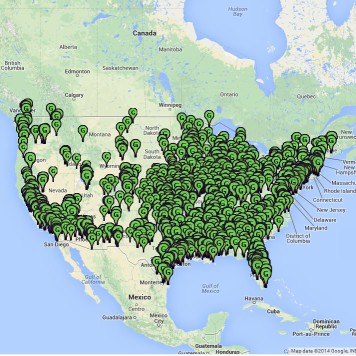FWIW ~ FYI
Rooftop Solar Power Has a Dark Side
...
SELECT EXCERPTS:
This year, during the heat of summer, when temperatures in New York surpassed 90°F, the 22 solar panels on the roof of my house were doing absolutely nothing.
This is not something I learned until September, four months after my husband and I bought this house with a purportedly functional leased solar system in upstate New York, months after logging into a website that inaccurately told us that the panels were working, months after we forked over $6,000 to prepay the remainder of the 20-year lease to the company supposed to be maintaining the solar panels, Spruce Power, which happens to be the largest privately held owner and operator of residential solar in America.
A third-party technician dispatched to our house by Spruce in September blamed squirrels that chewed on some important wires. Spruce blamed the previous owners, who they said fell behind on lease payments; in September, Spruce told us it had disconnected the system previously but that did not explain why they’d taken our money to prepay the lease on the panels in June. The panels are still not working to full capacity. (Made aware that this article was in the works, Spruce said in September that it will repay us for the months the panels were not working.)
We are not alone. Obscured by the recent rush to sign up households for rooftop solar and speed up the electrification of America are those who already have solar panels on their roof that do not work. Many were early adopters who did the “right” thing for the planet, installing solar before the expanded
financial incentives that came out of the Inflation Reduction Act (IRA). Because solar was more expensive in the 2010s, many entered into leases with solar companies to defray upfront costs, and many were left in the lurch when those companies went out of business. Often, their solar leases were packaged and sold, alongside thousands of others, to private equity companies and other investors who were not incentivized to ensure, years into the leases, that service was good or that panels even worked.
“Bad operators have left many people with broken systems and a bitter taste in their mouth,” says Daniel Liu, head of asset commercial performance at Wood Mackenzie, an energy research firm. “It costs a lot to actually service these panels, and a lot of people have fallen through the cracks.”
There were 5,331 complaints containing the words “solar panels” submitted on reportfraud.ftc.gov between Jan. 1 and Sept. 19 of 2023, up 31% from the entire year of 2022 and up 746% since 2018, the first year for which the Federal Trade Commission has data, according to the FTC’s response to a Freedom of Information Act filed by TIME.
...
These cases are important to consider amidst the growing interest in rooftop solar, prompted by big incentives in the IRA and volatile energy prices that are leading people to want to have more control over the cost of their own power. Around 4 million U.S. homes now have rooftop solar, up from 300,000 a decade ago, according to Eric O’Shaughnessy, a clean energy consultant.
But in terms of regulation of the companies providing those solar panels, not much has changed since ours were installed in 2014. The thousands of households signing up for solar today hoping for energy independence could also find themselves dependent on opaque companies who are slow to respond to problems or who are no longer in business. For all the promise of solar—that it can help wean us off fossil fuels and cut our energy bills—the focus on speeding adoption has come at a cost: it allows unreliable players to flourish in a booming industry.
“The issue is regulation—there’s none of it, and customers like us are just sitting ducks,” says Steve Drapeau, who lives in Walnut Creek, Calif., and says his solar system has not worked since August 2022. He’s an active member of a Facebook group for customers of Spruce Power whose systems do not work as promised, and says he tries to get the company to pay attention to his case almost every single day.
...
The solar system on my rooftop is leased; the house’s previous owners signed a 20-year contract in 2014 with a now-defunct Minnesota company called Kilowatt Systems. It is not rare for a solar company to go out of business and for its leases to be acquired by another firm; around 8,700 different companies installed at least one residential solar system between 2000 and 2016, according to the
National Renewable Energy Laboratory. Many of these installers were contractors who only dabbled in solar, but still, only 2,900 of those companies were still active by 2016.
We did not think the panels were a very good deal when we bought the house, but couldn’t find anyone who could confirm this; our real estate agent had never sold a house with leased panels before and our lawyer said she didn’t review solar contracts. Under the lease the previous owners had signed, which we were expected to take over, payments had started out at $67.92 a month but rose each year, reaching $116.93 in 2034; meanwhile, the amount of energy guaranteed each year lessened as the panels aged.
...
The companies that own many leased solar systems on Americans' rooftops are going out of business, leaving homeowners in a lurch.

time.com





